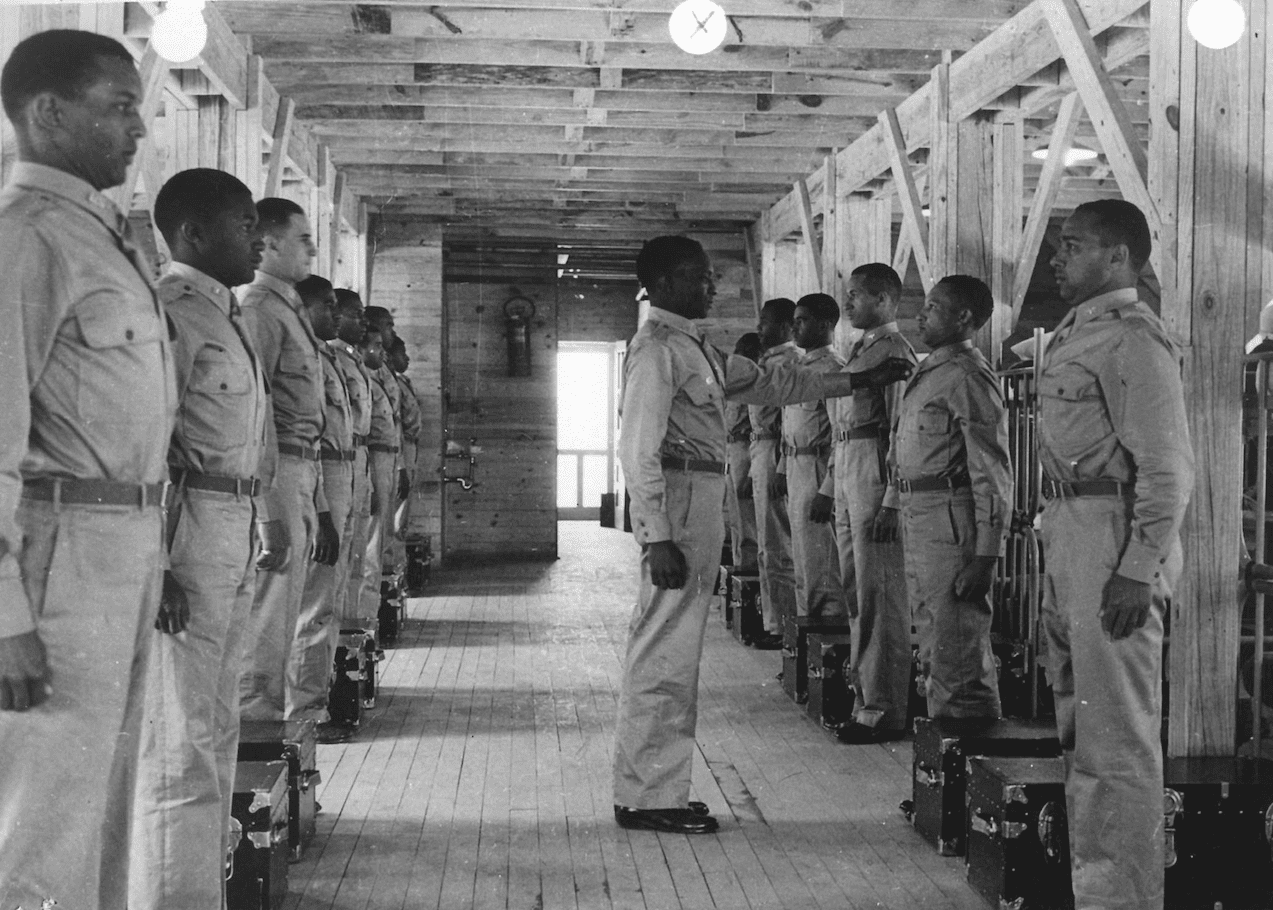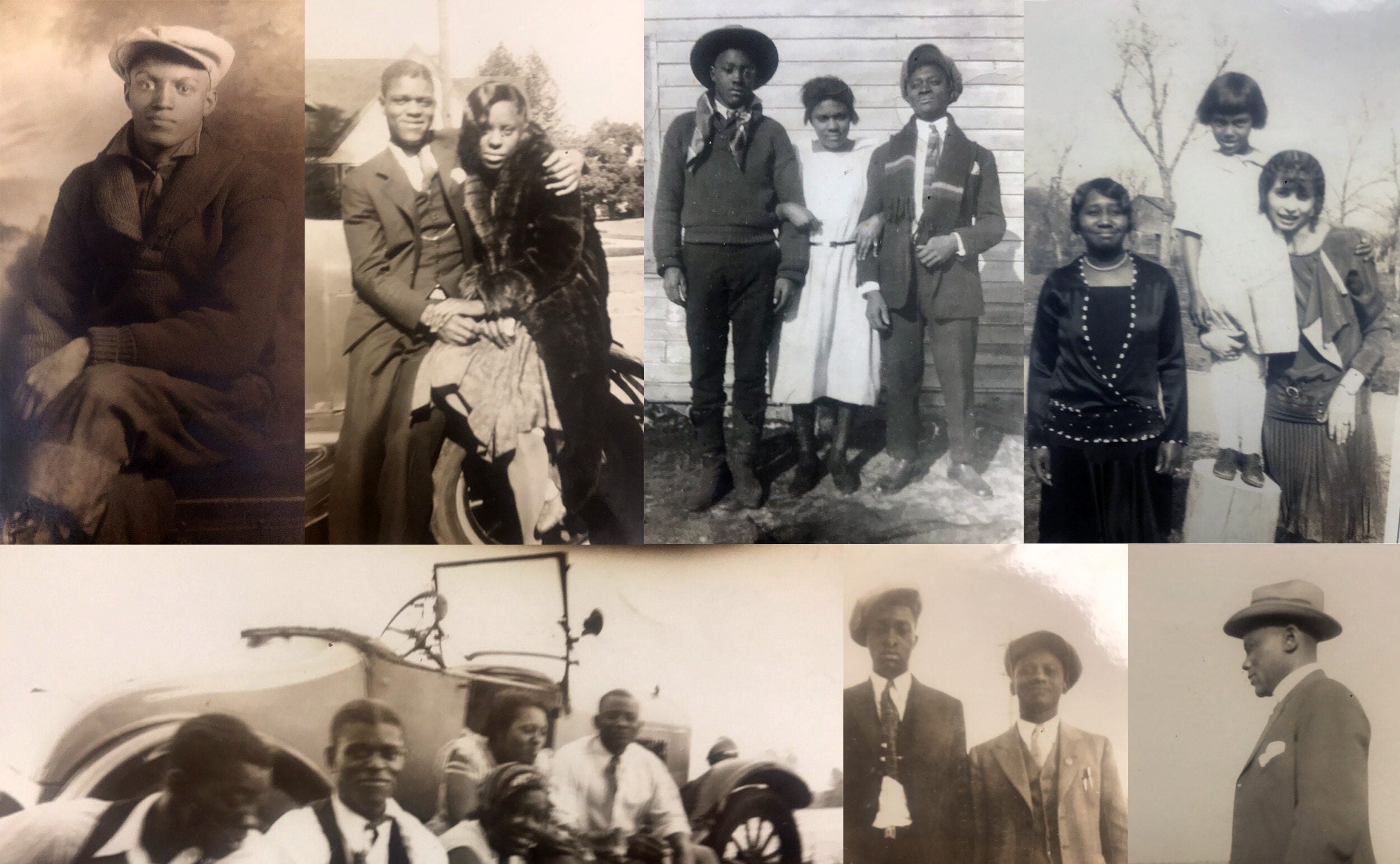The King of the Rant, comedian Lewis Black, tells us about his special, “Thank you for Risking Your Life.” Also, comedy wunderkind, Michael Schur, the creator of “The Good Place.” And author Gwen Kirby on her stories about women who are not going to take it anymore.
Featured in this Show
-
Comedian Lewis Black's conundrum: How do you satirize the satirical?
Editor’s note: The videos in this story contain language some may find offensive.
If you’re looking for a comedian who personifies anger, look no further than Lewis Black. Pixar chose him to voice the part of “Anger” in the Academy Award-winning film, “Inside Out” — a part it seems Black was born to play.
Black has been ranting and raving about the absurdities of contemporary life since the ’90s. He’s also written three best-selling books and more than 40 plays. His most recent special, “Thanks for Risking Your Life,” was filmed on March 13, 2020 — the day the U.S. government declared a state of emergency due to the coronavirus pandemic. Since the crowd was already at the venue, Black and his crew went ahead and filmed what may be the last recorded comedy special with an audience before the U.S. locked down.
“Thanks for Risking Your Life” features some very funny, very timely, very smart jokes, including Black’s caustic comments about just how far apart the two major political parties are these days.
As he says in his special: “We’ve done something with these two political parties that really is unbelievable. No other country has done it. No other country. We used to have parties that argued ideas. Not anymore. Now we have two separate political parties that actually exist in two totally different realities.”
“It’s like you go from one reality to another,” Black said. “I left New York, and the ‘OhMyGod virus,’ as I call it, was hitting there. And people were masking up again, and they never had stopped masking. They were masking on the streets in New York City. They were not fooling around. Then I got to Florida. It was like, ‘Woohoo, it’s over!’ You know, it was done there. And there is a real fight in this country. It’s those two realities.”
During his special, Black takes a detour from politics to comment on a less serious phenomenon — “cow cuddling.”
“I’ve never driven by a dairy farm or looked at the fields as my tour bus has rolled by a field filled with cows and thought, ‘God, I gotta get out there and hug one of those beasts.”
Black has been ranting and raving for about 25 years. Is it fair to say that as our world has become more messed up, the anger that he expresses on stage is less exaggerated and more genuine?
“Where it comes from has always been genuine,” he said. “It just can’t be angry. You got to play it. There’s a fine line because if you cross that line — which I used to do before — it kind of pushes the audience away. What’s funny is I was trying to find other ways to be.”
Black said that in one of his previous specials, he tried to calm down and find a way of expressing anger without yelling.
“The major criticism of that special is that ‘Uh oh, he got tired. He’s not yelling anymore.’ I felt I was saying things in a way that was more vicious than when I was yelling.”
The increasingly Kafkaesque absurdity that we find ourselves immersed in has created a challenge for Black.
“How do you satirize something that’s already satiric? That’s the hard part. My job is to be more insane than what I see.”
-
'The Good Place' creator, Michael Schur, takes us to the perfect place
Michael Schur can find the funny in nearly everything. He’s one of the principal players behind the comedic tour de force that is the NBC sitcom, “The Office” and it’s critically acclaimed and just as funny spiritual sibling, “Parks and Recreation.”
Side note: In addition to being the co-creator of “The Office”, Schur played the hilarious role of Dwight Schrute’s cousin and favorite farmhand, Mose.
Schur would go on to follow those two legacy sitcoms with the perennially Emmy-nominated NBC sitcom, “The Good Place.” The show was about the antics of four drastically different people trying to define what being good is while in the afterlife.
If he could make the mundane, fluorescent lighted cubicle farm and drab city government offices a comedy gold mine, no one doubted he could make the seemingly dry backdrop of ethical and moral thought experiments work.
Now, Schur has pivoted from pondering these moral questions on a television show to writing about it on the page. He has released the funny, poignant and brilliant book, “How to Be Perfect: The Correct Answer to Every Moral Question.”
Schur told WPR’s “BETA” that he got the idea for “The Good Place” while interrogating his own “super lame” behavior.
“I caught myself doing something odd at a Starbucks near my house where I would go in and order a medium coffee. It was $1.73. I would pay in cash, and then I would throw the 27 cents into the tip jar, as many people do,” he said. “But one day I realized that I didn’t just do that. I waited until the barista had turned around to see me do it, meaning that I craved some kind of moral credit or something for such a pathetic tip.”
If that sounds somewhat familiar, don’t be surprised. It was a small subplot on “Seinfeld” where the pathologically cheap George Costanza struggled to get the staff at a popular calzone restaurant to notice his generosity.
“I had never seen that episode, and then when I wrote about this, someone said like, ‘Oh, there was a Seinfeld story about this.’ I went back and watched it, and it was weirdly encouraging to me,” Schur said. “The fact that there was an episode of TV about this 20 years ago made me feel like, ‘Oh, OK, I’m not alone here.’ This is a thing that many people have experienced, which I think is really ultimately the point of the book is to try to pinpoint these little weird things that we all do and asking the question of, ‘Why we do them?’”
That particular moral philosophy that Schur (and George Constanza) stumbled onto is called Moral Dessert, Schur explained. “Which is the feeling that we want credit when we’re good people, which is a really fascinating topic that I think is very universal.”
So it was this self-reflection that spurred the idea for the “The Good Place.” When he set out to write it, Schur said he had only a passing knowledge and interest of the moral, ethical and philosophical questions that he wanted the show to playfully address.
“I had what I would call a Wikipedia-level understanding of (moral philosophy),” Schur said. “But, it was definitely the situation that I needed to do a lot of reading and a lot of studying leading up to writing the show before I felt like I could really write it properly. So, the show accelerated what was sort of latent or quiet interest that I had had at various points in my life.”
Schur jokes he put together a “combo platter” of reading to begin his education.
He began with Michael Sandel’s “Justice,” an overview of Western philosophical theories. He also worked his way through the philosophical canon of Aristotle, John Stuart Mill and Jeremy Bentham. Additionally, he had philosophy professors Todd May and Pamela Hieronymi consult on “The Good Place” and advise him on the book.
“The joke that we had was that there was a red phone in the writers’ room at ‘The Good Place’ that we could pick up, like Reagan calling the Kremlin and say, ‘There’s a philosophical emergency. We need your help,’” Schur said.
“How to Be Perfect” picks up and expands on the concepts Schur was scratching at during the show’s run. For instance, he writes extensively about perhaps the most popular thought experiment in philosophy, the trolley problem.
Devised by renowned philosopher Philippa Foot, the trolley problem presents a no-win scenario used extensively in most Philosophy 101 courses. Fans of “The Good Place” will no doubt remember that as a standout season 2 episode.
“I think the reason that it’s so popular is because in both situations, something bad happens, and I think there is something about modern life where that touches a nerve,” Schur said. “That is much more reflective of these sorts of ethical dilemmas that we find ourselves in all the time. And my guess is that’s why we’re still talking about it.”
In addition to grappling with how some Age of Enlightenment philosophical arguments apply to our contemporary society, Schur also developed his own theory. That is one he has dubbed moral exhaustion.
“The way the world works now, because of the internet, because of Twitter and Facebook, and everybody has a camera phone, we are constantly being bombarded with moral questions and ethical questions in a way we never have been before,” Schur said.
“Everyone across the globe instantly sees it and knows it and is sort of being asked to weigh in a moral way,” he continued. “You’re being asked to judge that person’s ethical behavior. That didn’t use to be the case, and because we see 50 of these things a day, it can be really exhausting to feel like every single moment of your life is being phrased or sort of proffered in an ethical or moral question.”
Schur extends this philosophy of exhaustion to the omnipresent question about artist versus art.
“Then there’s the flip side of that, which is that because we know all this information about people who are famous and not famous, we are constantly being asked to make judgments about our own lives in terms of, well, this director of movies was just revealed to be a weird creep. ‘Do you still support his movies?’ ‘Do you still watch his movies?’ ‘Do you still pay for his movies?’ This actor or this singer or this athlete is problematic in a different way. ‘Are you still going to root for that team?’ ‘Are you going to look at that person’s paintings,’” he said.
“You’re constantly now being asked to weigh in with yourself, at least about whether or not it’s OK that you’re still doing that. So that’s what I’m trying to encapsulate with the hot new philosophy term moral exhaustion,” Schur continued.
While he may have coined the theory of moral exhaustion, Schur himself is seemingly inexhaustible. After co-creating his “Good Place” follow-up with the cop comedy, “Brooklyn 99,” Schur has produced the critically acclaimed, “Rutherford Falls,” HBO’s “Hacks” and has plans to help adapt Shea Serrano’s autobiographical sitcom, “Primo” for IMDb TV.
And fitting for someone who trail blazed with the baseball comedy and journalism blog, Fire Joe Morgan, Schur plans to helm the television adaptation of “Field of Dreams.”
Sounds like he’s in his own perfect place.
-
Gwen E. Kirby takes creative risks to explore the lives of angry, funny and loud women
Editor’s note: This story contains language some may find offensive.
Gwen E. Kirby’s debut short-story collection is called “Shit Cassandra Saw.” The book features funny and creative stories about women who cannot take it anymore. And rightfully so.
These women cover a wide swath of history — from ancient Greece to contemporary times. Kirby is not afraid to take creative risks and push the envelope so far that all that’s left are itsy-bitsy, tattered remnants of the envelope. A perfect example is her story, “Midwestern Girl is Tired of Appearing in Your Short Stories.”
“At the time, I was reading the slush pile for ‘The Cincinnati Review,’ which is basically the term for the huge pile of submissions that any literary magazine gets at a given time, (and) I was noticing a lot of stories in which women characters would show up,” she told WPR’s “BETA.”
“They wouldn’t really be named. They would say something helpful to the male protagonist, and then they would kind of saunter offstage,” she continued. “And while I was doing that, I went to a reading and this man was reading a short story and there was a character in it that he just called ‘Midwestern Girl.’ And he never named her. And I just thought, what a great name for a superhero or something — ‘Midwestern Girl.’ And so I started writing these little vignettes where she sort of was sentient, if you will, and over the course of the story, she kind of takes over the narrative for herself.”
Kirby said her characters represent those that she wishes she would have seen more in books she read while she was growing up. Many of the stories in Kirby’s collection feature historical women. The title story, “Shit Cassandra Saw,” is a perfect example. It features Cassandra, who was Apollo’s Trojan priestess in Greek mythology.
Kirby said she wanted to write about real women from the past because she’s always loved history. She finds it exciting to learn about women from the past who don’t fit the mold of the kind of historical women that she learned about in school.
“They were pretty rarely front and center,” she said. “And so when I would learn their stories now — (the ancient British queen) Boudicca and the witch and all of these women — I just thought, how amazing, how cool to take a risk and have the chance to bring their voices to readers who might, if I’m lucky, look them up online and learn something about how radical women really have always been.”
Kirby said that her favorite story about a historical woman is probably “First Woman Hanged for Witchcraft in Wales, 1594,” which focuses on a woman named Gwen ferch Ellis. This story has a very soft place in her heart because it gives her the opportunity to change history, Kirby said.
“Unsurprisingly, the first woman hanged for witchcraft in Wales died, as you would,” she said. “But you know, one of the things I always found so weird about witch trials was if you were a witch, how were a bunch of lame villagers in the 1500s going to kill you? You would just use your magic.
“So I wanted to write a story where the villagers actually got their hands on a witch. And so, of course, when they go to hang her, she can free herself. And that felt like a wonderful tribute to a very, very long ago Gwen, who was not that lucky.”
Kirby has said her writing has become angrier as it has become more honest about the experiences women have faced throughout history, and in Kirby’s own life.
“I think a lot of people today are angry,” she said. “I feel like that’s an emotion that is really widespread. And as a woman, you know, you’re not really supposed to be angry. The label ‘angry feminist’ is a very quick way to have your point of view discounted. But I just felt dishonest writing about the experience of women without writing about the ways in which, yes, of course, we’re angry.”
Another standout story of Kirby’s is “A Few Normal Things That Happen A Lot,” which is based on some of her personal experiences, which are universal among women.
“So being harassed at a bus stop, being stalked around a grocery store, being groped. Those are all things that have happened to me,” Kirby said. “And so that kind of catharsis of the story is that, when that happens to these women, they use their superpowers to kick some ass.” The anger in the story is very, very real, even if the sort of imaginative world that I create to process that anger is more fabulist.”
Here’s the first paragraph of “A Few Normal Things That Happen a Lot”:
“A woman walks down the street and a man tells her to smile. When she smiles, she reveals a mouthful of fangs. She bites off the man’s hand, cracks the bones and spits them out, and accidentally swallows his wedding ring, which gives her indigestion.”
Kirby’s vivid imagination and her willingness to subvert story structure is on full display in “Jerry’s Crab Shack, One Star” and “How to Retile Your Bathroom in 6 Easy Steps!”
As the title indicates, “Jerry’s Crab Shack, One Star” takes the form of a Yelp review.
“I love those places on the internet that are so public and yet so private and so persona,” Kirby explained. “And I really kind of wanted to see if I could make something out of that form. And the review begins to get off track, if you will, as rather than a review of Jerry’s Crab Shack, it becomes kind of a review of his (the protagonist, Gary F.) wife, himself and his marriage. He’s like, I would never review my wife, but if I were going to review my wife, here are a few things I would say. And so you could just kind of feel as his emotions kind of carry him away.”
Episode Credits
- Doug Gordon Host
- Adam Friedrich Producer
- Steve Gotcher Producer
- Steve Gotcher Technical Director
- Lewis Black Guest
- Michael Schur Guest
- Gwen E. Kirby Guest
Wisconsin Public Radio, © Copyright 2025, Board of Regents of the University of Wisconsin System and Wisconsin Educational Communications Board.



